Henrique Ferraz
SecSens: Secure State Estimation with Application to Localization and Time Synchronization
Jan 22, 2018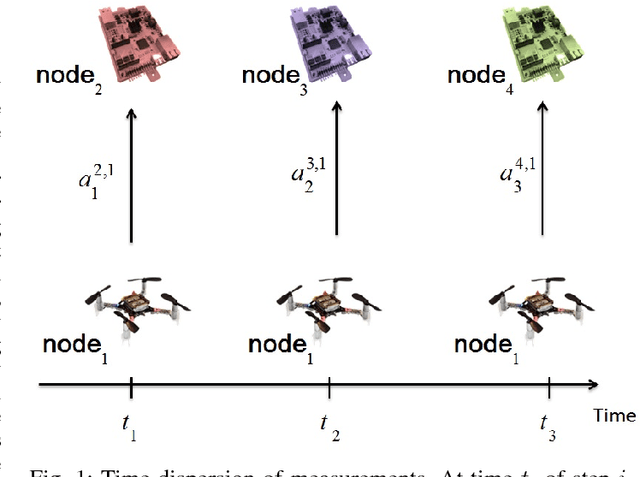
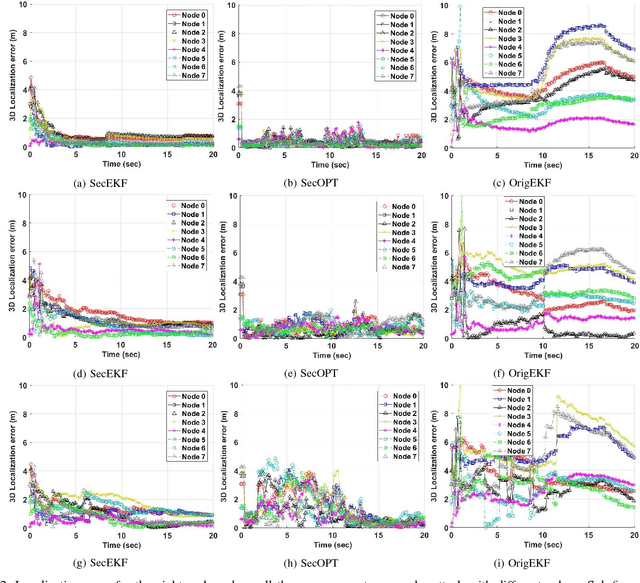
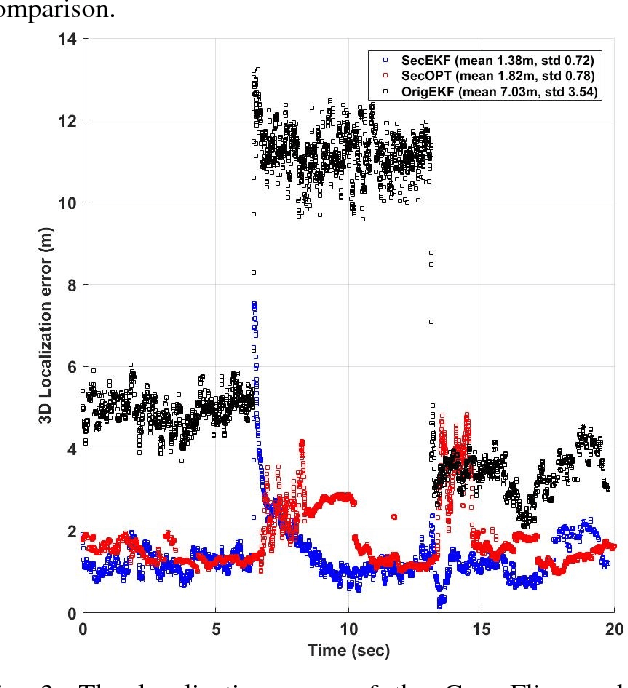
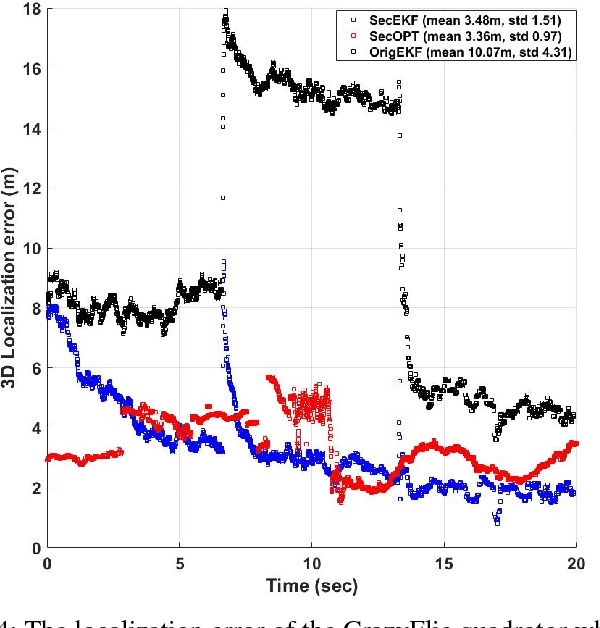
Abstract:Research evidence in Cyber-Physical Systems (CPS) shows that the introduced tight coupling of information technology with physical sensing and actuation leads to more vulnerability and security weaknesses. But, the traditional security protection mechanisms of CPS focus on data encryption while neglecting the sensors which are vulnerable to attacks in the physical domain. Accordingly, researchers attach utmost importance to the problem of state estimation in the presence of sensor attacks. In this work, we present SecSens, a novel approach for secure nonlinear state estimation in the presence of modeling and measurement noise. SecSens consists of two independent algorithms, namely, SecEKF and SecOPT, which are based on Extended Kalman Filter and Maximum Likelihood Estimation, respectively. We adopt a holistic approach to introduce security awareness among state estimation algorithms without requiring specialized hardware, or cryptographic techniques. We apply SecSens to securely localize and time synchronize networked mobile devices. SecSens provides good performance at run-time several order of magnitude faster than the state of art solutions under the presence of powerful attacks. Our algorithms are evaluated on a testbed with static nodes and a mobile quadrotor all equipped with commercial ultra-wide band wireless devices.
D-SLATS: Distributed Simultaneous Localization and Time Synchronization
Nov 10, 2017

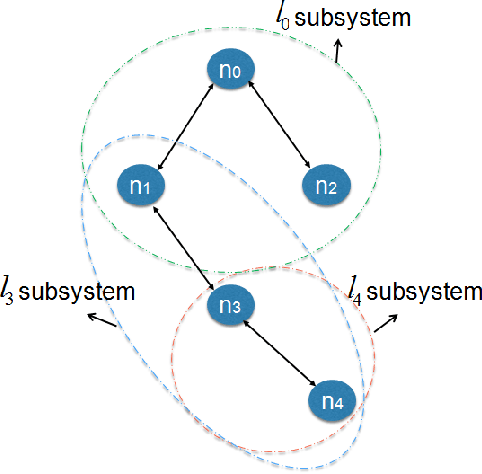

Abstract:Through the last decade, we have witnessed a surge of Internet of Things (IoT) devices, and with that a greater need to choreograph their actions across both time and space. Although these two problems, namely time synchronization and localization, share many aspects in common, they are traditionally treated separately or combined on centralized approaches that results in an ineffcient use of resources, or in solutions that are not scalable in terms of the number of IoT devices. Therefore, we propose D-SLATS, a framework comprised of three different and independent algorithms to jointly solve time synchronization and localization problems in a distributed fashion. The First two algorithms are based mainly on the distributed Extended Kalman Filter (EKF) whereas the third one uses optimization techniques. No fusion center is required, and the devices only communicate with their neighbors. The proposed methods are evaluated on custom Ultra-Wideband communication Testbed and a quadrotor, representing a network of both static and mobile nodes. Our algorithms achieve up to three microseconds time synchronization accuracy and 30 cm localization error.
 Add to Chrome
Add to Chrome Add to Firefox
Add to Firefox Add to Edge
Add to Edge